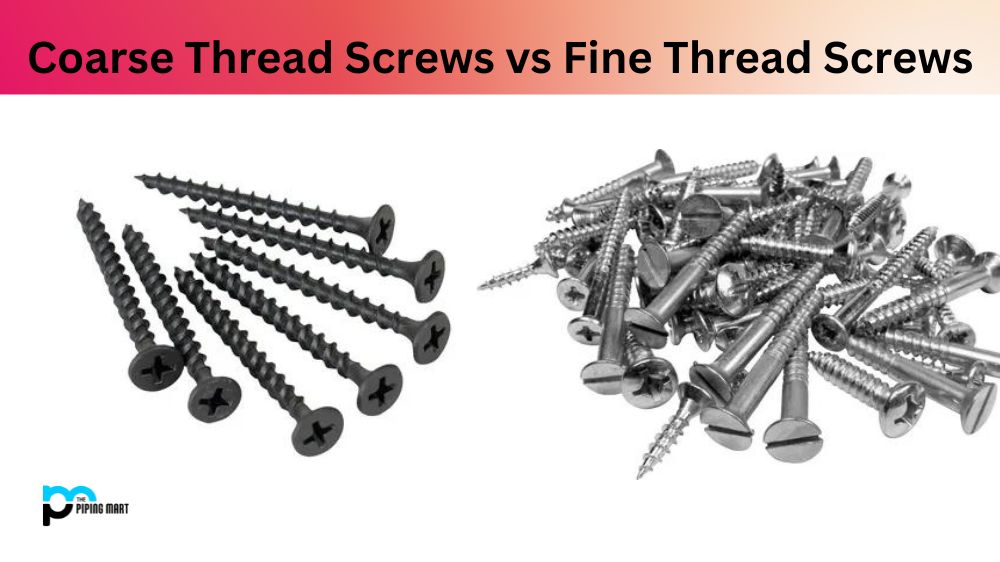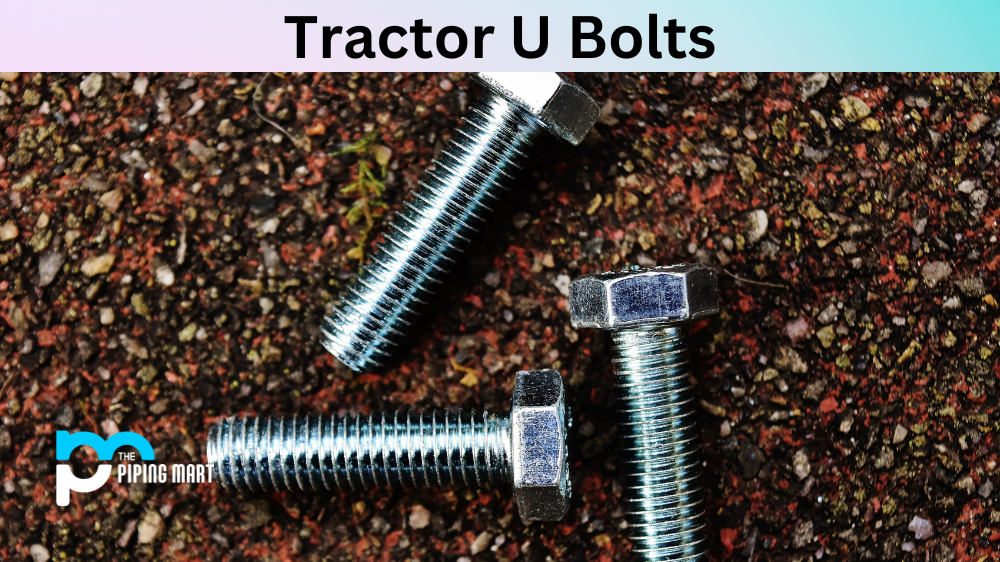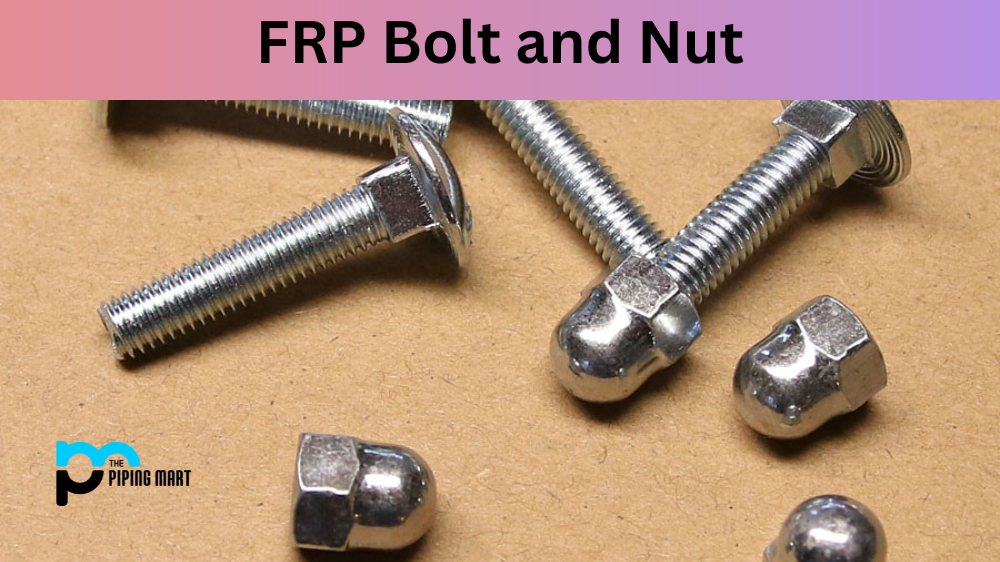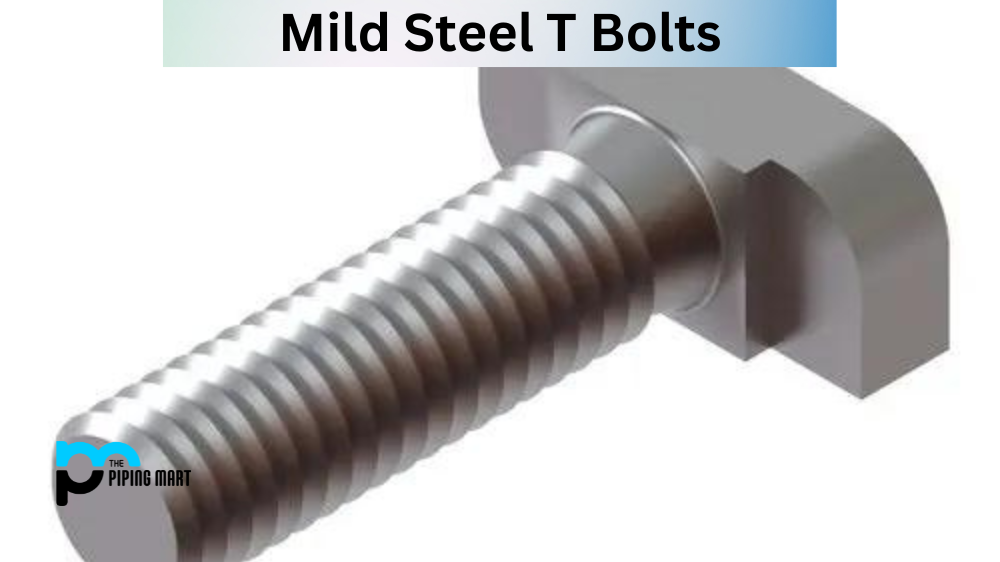When it comes to joining materials together, screws are a popular choice. But did you know there are different types of screws to use depending on your project? Two of the most common types of screws are the coarse thread screw and the fine thread screw. Both of these screws have their advantages and disadvantages, and in this blog post, we will explore the differences between these two types of screws.
What is Coarse Thread Screw?
A coarse thread screw is a type of threaded fastener which uses larger threads than most screws, providing more strength. They are typically used for applications requiring high clamping force and large tensile loads but can be used in all applications. The additional width of the threads makes them easier to drive into the material and often requires less torque.
What is Fine Thread Screw?
A fine thread screw is a fastener with a more tightly-spaced thread than standard screws. Its threads are densely packed to provide greater strength and holding power for heavy-duty applications. Fine thread screws also reduce the amount of material required to be used, making them ideal for thin metal components or structures. Additionally, their increased holding power means they can be used at higher clamping forces and greater tensions with the same size, adding durability and longevity.
Difference Between Coarse Thread Screw and Fine Thread Screw
Thread pitch and length
The main difference between coarse thread screws and fine thread screws is the thread pitch and length. Coarse thread screws have a larger and deeper thread that allows them to better grip and hold materials together. On the other hand, fine thread screws have a shallower and closer thread, which provides a smoother and more secure fix.
Grip strength
Coarse thread screws are suitable for projects that require a strong grip and that will be exposed to harsh conditions, such as external projects. The deeper grooves on the screw offer a higher resistance to pull-out forces and can withstand heavier loads than fine thread screws. Fine thread screws work best for assembling materials with minimal to no movement, such as furniture or casing.
Degree of precision
Fine thread screws work best for applications that require precision and a smooth finish because of the length, and thus enable them to fit into tight spaces and hold delicate objects without snapping or breaking. This characteristic also makes them ideal for applications where power tools are inappropriate or too forceful, such as fixing computer peripherals, jewellery boxes or safety glasses.
Screw head design
The screwhead design also differs. Coarse thread screws typically have a flathead design, giving a higher clamping force over the contact area. Conversely, Fine thread screws have a slightly conical-shaped head that can countersink it into the material and offer a more seamless finish.
Application
Both coarse thread screws and fine thread screws offer exceptional qualities, making them suitable for specific applications. Coarse thread screw has the greatest prominence in construction for framing purposes, creating a stronghold to fasten external wall connections, drywall, or plywood. On the other hand, fine thread screws find their use in assembling wood denser materials like hardwoods for high precision light product manufacturing or metal to aluminium pairs.
Conclusion:
In conclusion, while screws are relatively small items used in joining materials, they greatly impact the project outcomes. The decision on which type of screw best suits your project is influenced by the material type, project application, workspace setting, and other construction aspects. The thread pitch, length, and screwhead design are important aspects to consider when choosing between coarse thread screws and fine thread screws. Understanding their differences lets you choose the right screw for your home renovation, DIY or construction projects.




